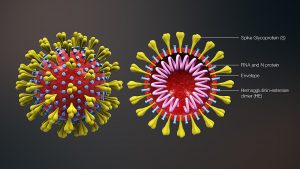There have been some memorable scorelines over the years.
The two most important of all time are, of course, Nottingham Forest 1 : Malmö 0 and Nottingham Forest 1 : Hamburg 0, to win the 1979 and 1980 European Cup finals. And, yes, I’d really like East Fife 4 : Forfar 5 to actually happen (and not on penalties, 22/07/2018 doesn’t count).
But the result that really matters occurred in May 2020: Covid 19 : CO2 0. A couple of things came together: The sunniest spring on record in the UK, with May’s MetOffice stats confirming a stonking 269.6 hours of bright sunshine in East and North East England, our area. But, on the downside, the Global Zombie Apocalypse Megadeath pandemic continued to do its thing.
So, whilst global megadeath was an unreservedly bad thing, on the brighter side, May 2020 gave the UK (and the rest of the world) a glimpse of how a low-carbon future will look, painting in even more vibrant colours the picture that had begun to emerge in April, the first full lockdown month.
Pandemic meant pandemonium for the economy. And that meant massively lower demand for energy due to shutdowns for business and lockdowns for the people. By consequence, that also meant massively less mileage driven on the roads.
Simultaneously, with massively lower demand, the sun helpfully shone and the wind generously blew, which led, at 12:20 on 24 June, to a record low-carbon generation mix (60 gCO2/kWh) at National Grid level. (The GB Grid Carbon Intensity app is here.)
A tip of the hat to Patrick Erwin for spotting the grid going green. Responding to him, it occurred to me that this was a very clear view of the COVID/carbon connection in action.
How curious it is that something as ruthlessly fatal to humans is actually brilliant for the health of humankind’s home planet.
Basic message: if everybody and everything slows down, the generation mix goes supergreen.
The real, structural challenge will be keeping it green when the economy reignites.
Read more: Clean Technica





